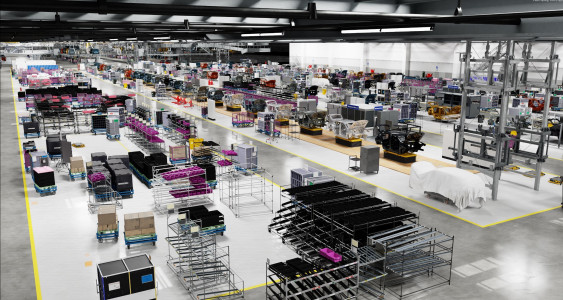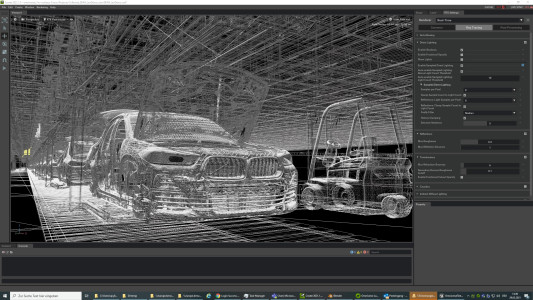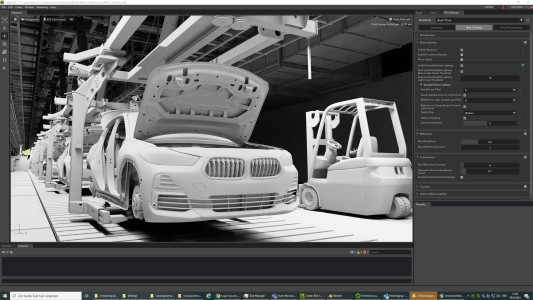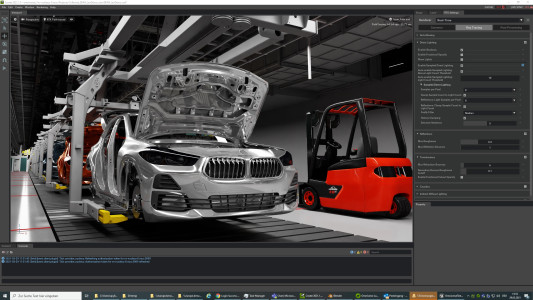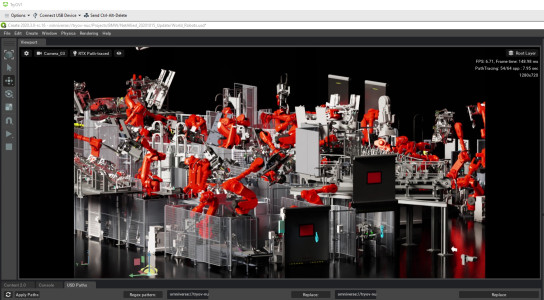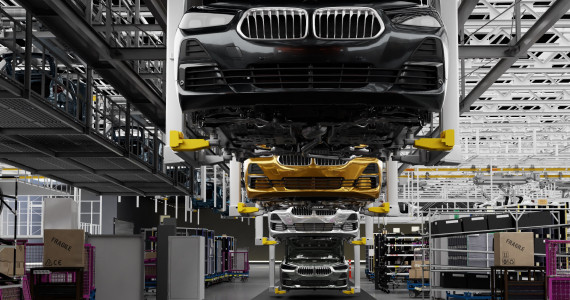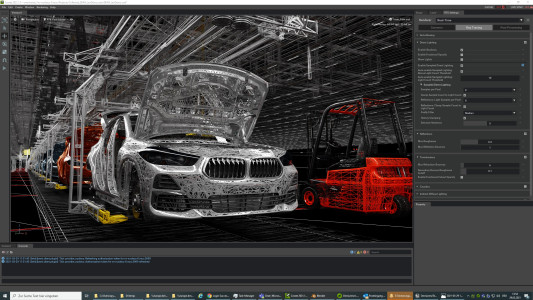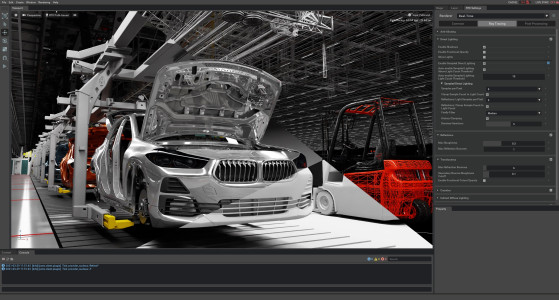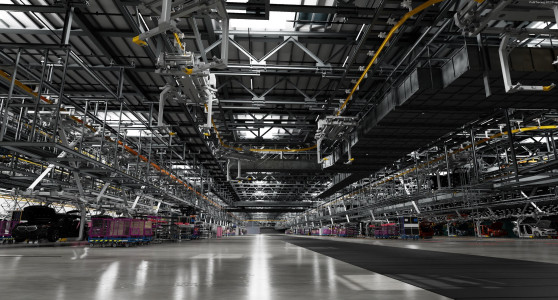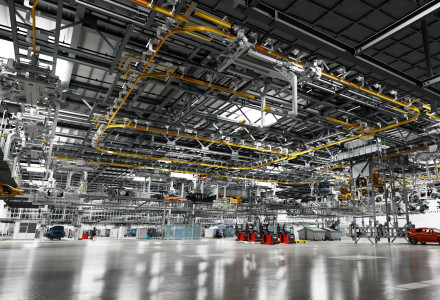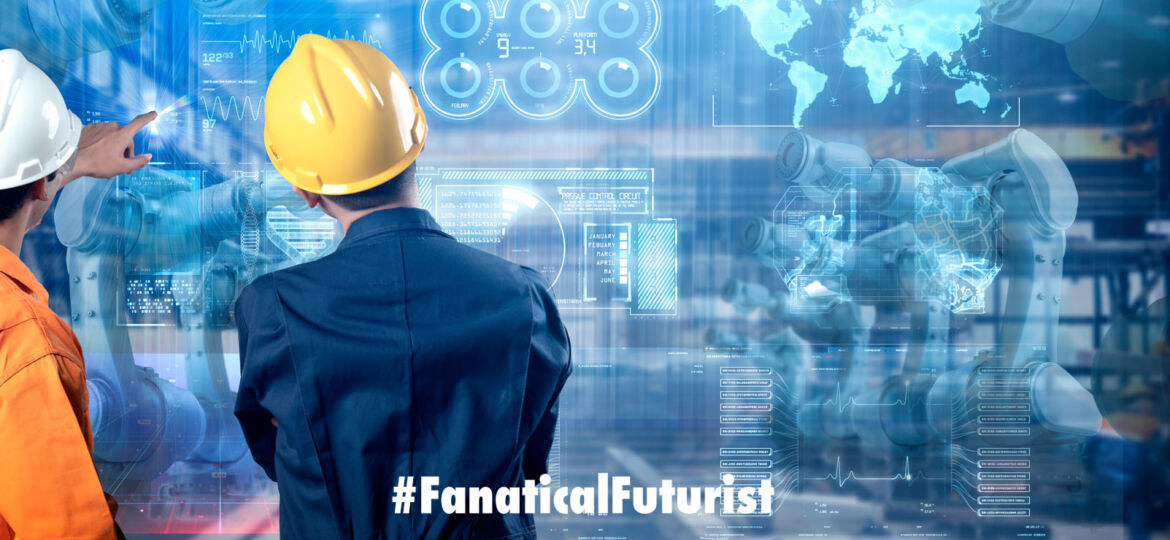
WHY THIS MATTERS IN BRIEF
BMW have been using a virtual simulation and AI to create the perfect optimised factory, for humans and robots, before they build the real thing.
 Love the Exponential Future? Join our XPotential Community, future proof yourself with courses from XPotential University, connect, watch a keynote, or browse my blog.
Love the Exponential Future? Join our XPotential Community, future proof yourself with courses from XPotential University, connect, watch a keynote, or browse my blog.
German car maker BMW likes experimenting with the latest technologies. Recently they used one of the world’s most powerful prototype Quantum computers to optimise their supply chain, and now they’ve announced plans to start making drivetrains for electric vehicles at a vast factory in Regensburg, Bavaria, later in 2021, but with a twist – the future factory already has a digital twin before it’s even built. And this, frankly, is the future of manufacturing …
As a sign of the times and well before any new parts roll off the production line BMW’s entire manufacturing process in the factory will run in stunningly realistic detail inside a perfectly crafted virtual simulation that won’t only let the company optimise every aspect of the factory’s operations before it’s even built.
Furthermore, when the real factory is constructed this same digital twin will let the robots on the factory floor teach one another new tricks via hive minds, AKA Artificial Intelligence (AI) and the cloud, and then, with the addition of digital human avatars in the simulation it could even improve and optimise the working conditions of the human workers too.
“The virtual simulation allows managers to plan the production process in greater detail than was previously possible,” says Markus Grüneisl, who leads production strategy at BMW. “We now have a perfect digital twin of our real-time production,” he says.
The new virtual factory – as real as it gets
The simulation is part of BMW’s plan to use more AI in manufacturing. Grüneisl says machine learning algorithms can simulate robots performing complex manoeuvres to find the most efficient process. Over time, BMW wants to use the simulation to have robots learn how to perform increasingly complex jobs.
BMW used a software platform called Omniverse, developed by the chipmaker Nvidia, to recreate the Regensburg production line. Last year, BMW said it was using an AI platform from Nvidia called Isaac to train robots for certain new tasks.
“In the future, I am very positive that we can just put a new robot in this facility, and say, ‘OK, talk with the other robots and find the best way to produce this [vehicle],’” Grüneisl says.
Manufacturers have used computer simulations to hone their assembly lines for some time. But Omniverse allows the entire production process to be simulated with photo-realistic details, aswell as with physical properties like gravity and different materials.
It’s also possible to lay out the production process from start to finish, and to see how changes to one part might have knock-on effects on another. It is easier to build a more complex virtual environment because different 3D models can be imported into the system, and Omniverse uses an open file standard compatible with numerous computer-aided design packages.
The software even simulates avatars of human workers grabbing parts and tools and assembling components in order to find the best procedure and minimise ergonomic problems.
“It might also make it possible for fewer workers to complete a particular job,” Grüneisl says.
“We do AI simulation of how people move around the factory,” says Richard Kerris, general manager for Omniverse at Nvidia. He calls the project “one of the most complex simulations that’s ever been done.” There’s growing interest in using AI to control robots and other industrial machines.
Encouraged by recent progress in AI and virtual simulation training some companies like Elon Musk’s OpenAI and Tesla, as well as Amazon, Google, NASA, and others, have been using these simulations to develop and train self-driving vehicles and robots millions of times faster than could be done with traditional technologies and techniques. This often uses an AI approach called reinforcement learning, which involves an algorithm experimenting and learning, from positive feedback, how to achieve a specific goal.
“This is definitely the way to go,” says Ding Zhao, a professor at Carnegie Mellon University who focuses on AI and virtual simulations. Zhao says simulations are crucial to using AI for industrial applications, partly because it is impossible to run machines through millions of cycles to gather training data. In addition, he says, it’s important for machine learning models to learn by experimenting with unsafe situations, such as two robots colliding, which cannot be done with real hardware.
“Machine learning is data-hungry, and collecting it in the real world is expensive and risky,” he says.
Willy Shih, a professor at Harvard Business School who specializes in manufacturing technology, says the sophistication of simulation has been increasing steadily, and he says simulation primarily saves time and money by pre-empting future manufacturing problems.
Shih says there is plenty of hype around AI for manufacturing but adds, “There are lots and lots of applications” for the technology too.
Meanwhile back at Nvidia CEO Jensen Huang discussed BMW’s use of Omniverse during his keynote at the company’s annual GTC conference, held virtually on Monday. Nvidia initially made graphics chips for gaming but broadened its focus when these chips proved adept at training AI programs. The company has since leapt into several other industries where AI is important, including automotive and medical imaging.
Source: BMW

